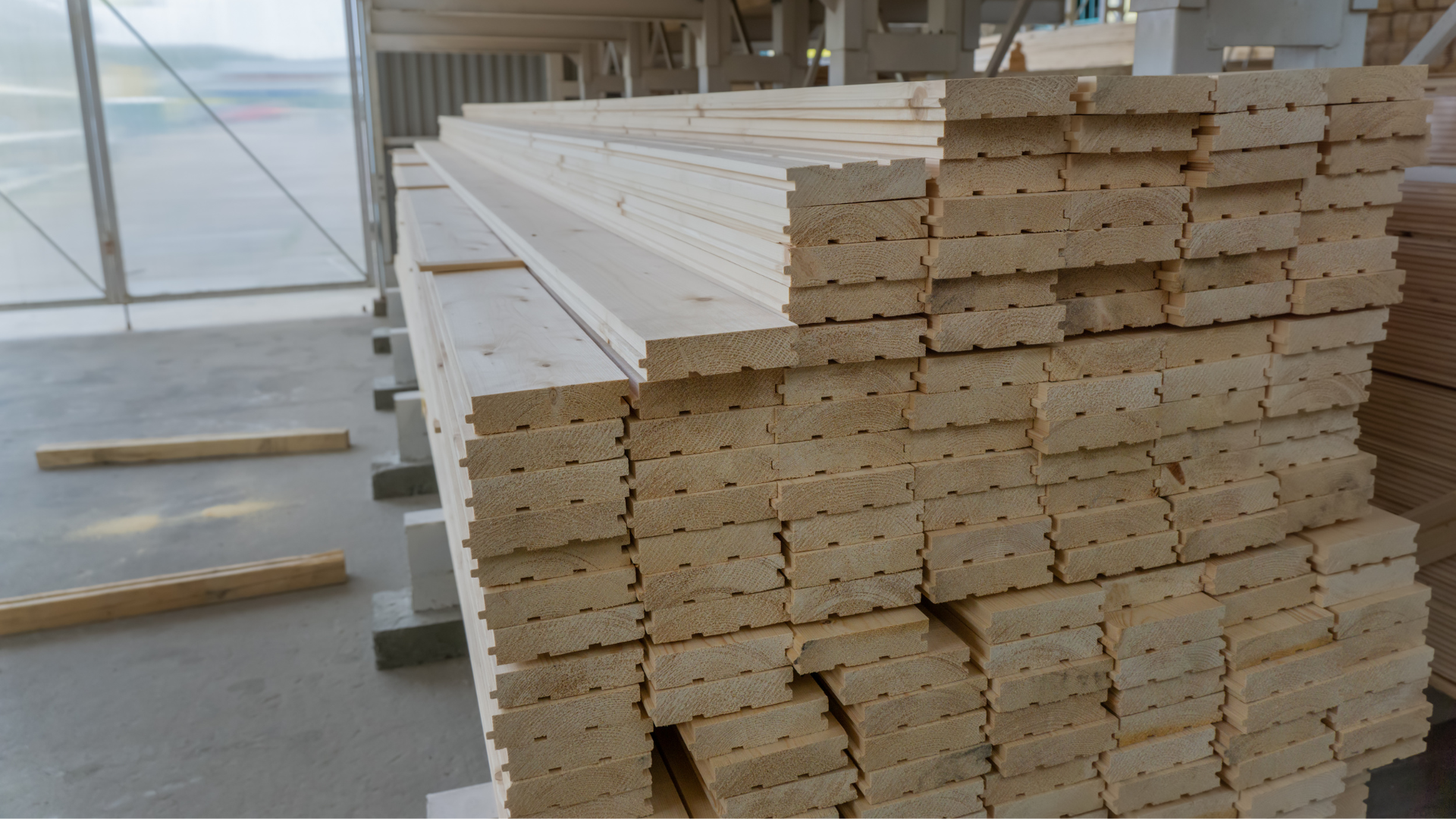Beautiful and enduring decking begins with the right outdoor timber boards. Not only does it add value to your property, but it also becomes an extension of your outdoor living space. However, with a plethora of options available, it can be overwhelming to know where to begin.
That’s exactly what this guide is here for! Join us as we take you through the best choices in the UK market. Here, we’ll also cover the factors you need to consider to make an informed decision.
Let’s get started!
Timber Decking Options
When it comes to decking timber, two primary categories dominate the market:
- hardwoods
- softwoods
Hardwoods are renowned for their exceptional durability and strength. Popular choices include cedar, redwood, and ipe. They possess natural oils and resins, making them highly resistant to decay and pests. What’s more, their rich and diverse colour variations leave a touch of elegance to outdoor spaces.
In contrast, softwoods like wood pine are favoured for their durability and accessibility. With proper treatment and maintenance, you can enhance their rot and insect resistance. Their range of tones, from light creams to warm browns, also lends a rustic charm to your deck.
Factors to Consider
Selecting the right decking wood involves careful consideration of several crucial factors. First, take note of the climate and weather conditions in your region. Certain timbers are better suited to withstand extreme heat or cold temperatures. Understanding your local climate will help you choose the right timber for your deck.
Next, evaluate your deck’s location in relation to sun exposure, shade, or moisture. For one, different decking timber reacts differently to these environmental factors. This affects their susceptibility to warping, fading, or decay.
Maintenance requirements are another critical aspect. Some species demand more frequent treatments, staining, or sealing. Such upkeep routines help preserve their integrity, while others are naturally low-maintenance options.
Lastly, consider your budget constraints. Hardwoods tend to be more expensive than softwood. Decking wood prices for exotic timbers may also come at a premium to add. Find a balance between your budget and desired timber for a cost-effective solution.
Durability and Lifespan
Timbers exhibit varying degrees of durability and lifespan. This is influenced by their inherent properties and natural resistance to external threats.
For long-lasting deck solutions, hardwoods examples are your best bet. All thanks to their natural oils and resins that act as a deterrent to pests and decay.
Meanwhile, softwoods may require more maintenance for further decay immunity. But with the right TLC, they can still serve as durable decking options.
Overall, choosing timber with robust natural resistance is key. Such properties guarantee the longevity and quality performance of your patio deck.
Aesthetics and Finishing Options
The choice of timber plays a pivotal role in defining the deck’s overall appearance and style. Hardwoods exude a luxurious charm with their rich hues and intricate grain patterns. Meanwhile, a more rustic and cosy ambience for softwoods, perfect for laid-back settings.
To further enhance the timber’s natural beauty, apply finishes, stains, or coatings. Clear coatings accentuate the timber’s natural colour and grain. Stains come in an array of shades, allowing you to customise the deck’s colour.
Whether aiming for a modern or traditional look, the right finish can make a huge difference.
Environmental Considerations
The environmental impact of using different timber types for decking varies significantly. Some hardwoods can contribute to deforestation and habitat loss. This is especially the case for those sourced from unsustainable logging practices.
Furthermore, opting for reclaimed timber kits also minimises the demand for new resources. Composite or bamboo also makes an excellent sustainable alternative. By making environmentally conscious choices, further reduces your ecological footprint.
Maintenance and Upkeep
Different timber types have varying maintenance requirements. Hardwoods, in particular, generally require less frequent maintenance. For types of softwoods, more frequent treatments may be necessary to enhance durability. Avoiding standing water and using deck furniture with protective pads prevents damage.
Regularly cleaning the deck from dirt, debris, and mould is essential for all timbers. Applying a sealant or stain every few years helps preserve the wood’s integrity and colour. Regular inspections and timely repairs also ensure any deck’s longevity.
Round-up
Selecting the right timber for your decking project is a crucial decision. For one, it directly impacts durability, appearance, and environmental responsibility.
Hardwoods offer exceptional longevity and elegance, while softwoods like pine provide budget-friendly options. Remember to consider your local climate, deck location, maintenance requirements, and budget constraints.
For all your decking timber needs, head on to TimberX! Explore a wide range of quality options and expert advice to create your dream deck. Next, discover what kind of timber pine is.
